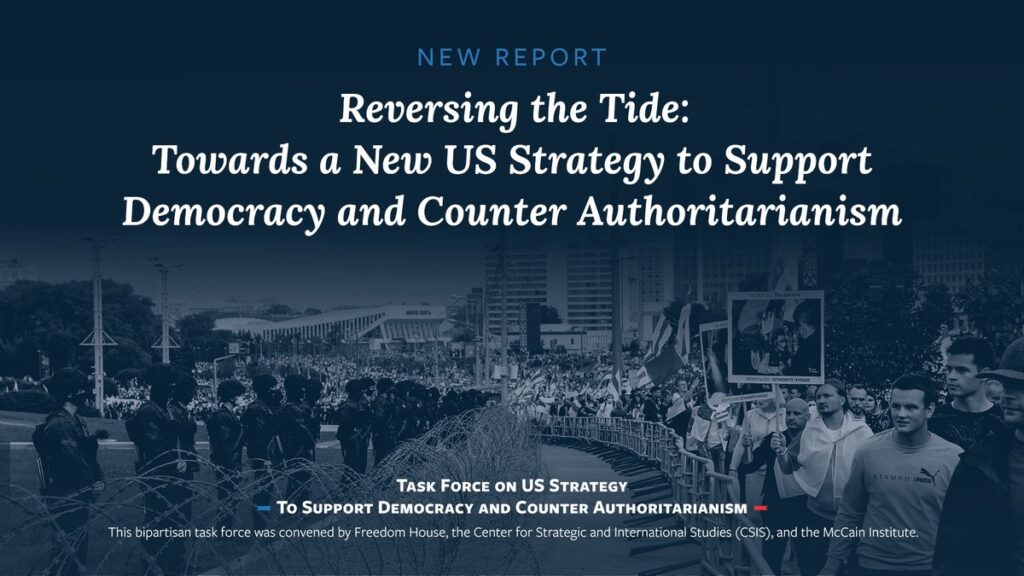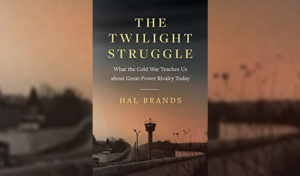 The war in Ukraine has confirmed that regime type is a crucial driver of international behavior, argues Hal Brands, Henry A. Kissinger Distinguished Professor of Global Affairs at the Johns Hopkins School of Advanced International Studies and a Senior Fellow at the American Enterprise Institute. Russia’s policies flow from a witch’s brew of history, geopolitics, personality, and ideology, but autocracy and aggression undoubtedly go together in Putin’s regime. A democratic Russia would not feel so threatened by a democratic, Western-facing Ukraine.
The war in Ukraine has confirmed that regime type is a crucial driver of international behavior, argues Hal Brands, Henry A. Kissinger Distinguished Professor of Global Affairs at the Johns Hopkins School of Advanced International Studies and a Senior Fellow at the American Enterprise Institute. Russia’s policies flow from a witch’s brew of history, geopolitics, personality, and ideology, but autocracy and aggression undoubtedly go together in Putin’s regime. A democratic Russia would not feel so threatened by a democratic, Western-facing Ukraine.
Standing up to authoritarian aggressors for democracies is turning into the main theme of Biden’s presidency, CNN reports. He wants to show the world that the US form of government is better than the authoritarian version, where presidents change the rules to give themselves power for decades or for life and where they plot to seize land.
 A free-world coalition strategy offers a plausible rationale for working with some autocrats against others. And it packs a strategic punch: a free-world coalition can allow the United States and its friends to marshal a decisive superiority on critical issues. Nonetheless, challenges abound, he writes for Foreign Affairs:
A free-world coalition strategy offers a plausible rationale for working with some autocrats against others. And it packs a strategic punch: a free-world coalition can allow the United States and its friends to marshal a decisive superiority on critical issues. Nonetheless, challenges abound, he writes for Foreign Affairs:
- The first involves managing interdependence in a fragmenting world. The goal here should be not to fully unwind those ties but to ensure that the terms of interdependence favor the free world. This will require selective decoupling—denying Chinese firms access to investment and high-tech inputs, for instance, or increasing Europe’s freedom of action by weaning it off Russian energy supplies. More important will be increasing the commercial, financial, and technological cohesion of the free world, to accelerate its growth and innovation and decrease its vulnerability to autocratic coercion. ….
- A separate challenge is engaging ambivalent, democratic partners, countries that cooperate with Washington on concrete issues but don’t particularly like the free-world model. The United States will need different rhetoric for different audiences: self-determination and freedom of geopolitical choice may sell better than democracy-versus-tyranny in Africa or Southeast Asia….
 Finally, how does this end? asks Brands, the author of The Twilight Struggle: What the Cold War Teaches Us about Great-Power Rivalry Today. Democracies can moderate tensions with hostile autocracies, as détente showed during the Cold War. But if this is really a contest between countries with fundamentally different worldviews based on fundamentally different domestic orders, then such a détente will, once again, be temporary. RTWT
Finally, how does this end? asks Brands, the author of The Twilight Struggle: What the Cold War Teaches Us about Great-Power Rivalry Today. Democracies can moderate tensions with hostile autocracies, as détente showed during the Cold War. But if this is really a contest between countries with fundamentally different worldviews based on fundamentally different domestic orders, then such a détente will, once again, be temporary. RTWT
Democratic governments could perhaps draw lessons from non-state actors’ flexibility, adaptability and capacity for innovation.
America had “no institutions devoted to political training and funding,” Secretary of State Alexander Haig wrote in 1982, Brands writes in Twilight Struggle. “If we want democratic forces to win, they need practical training and financial assistance to become as effective as the communists in the struggle to take and maintain power,” he stated in a 1982 memo to President Ronald Reagan.
The National Endowment for Democracy (NED) has since demonstrated “how even a small, underfunded entity could make a big difference,” Brands adds, noting that the NED “united a diverse group of actors with a common interest in democracy promotion; established an enduring, nonpartisan framework for action; and filled a key competitive gap.”







